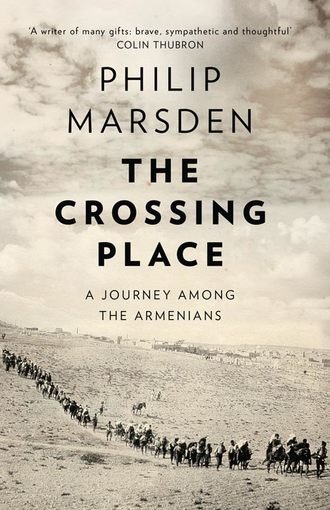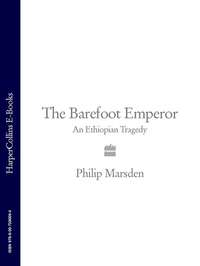
Полная версия
The Crossing Place: A Journey among the Armenians
‘Really?’
‘Yes, they’re so gay. I had thought it would be grey and drab, you know, Russian. But when I got there, it was livelier than Aleppo.’
‘You surprise me.’
‘And Edjmiatsin’s so beautiful. I defy anyone to go there and not come out a better Christian.’
Opposite me sat an American journalist.
‘We don’t like journalists very much,’ challenged Mrs Mazloumian. ‘They’ve come here before and written some frightful nonsense.’
The American muttered some apology, but he was a little nonplussed. He was Jewish and Jews in Syria – beyond the walls of the Baron – are not very welcome.
‘Where are you based?’ I asked.
‘Bonn.’
At the end of the table Krikor’s eyes lit up from amidst his silent menagerie. ‘Bonn! So you speak German. The letter! Where’s that letter?’
The Kurdish waiter went off, a little too eagerly, to get it from the telex room.
‘Well, it’s a strange German,’ said the journalist. ‘From Slovenia, I think. A girl … she’s fallen in love with a Syrian policeman. “I need that man!” She cannot live another moment unless she finds that policeman.’
‘Poor girl!’ said Sally Mazloumian, who had also lost her heart in Aleppo. She had come out in 1947 as a nurse from England. Krikor was enchanted by her; they used to meet beneath an almond tree on the hotel balcony and within a short time were married. She had lived at the hotel ever since.
Yet her introduction to Aleppo and its Armenians had come much earlier. When she was a girl in England between the wars, Sally used to watch with particular dread the approach of a grey, willowy woman up her family’s Yorkshire drive. This woman would come selling strange things from abroad. They used to call her Pilgrim-Frances but Sally saw her as somehow ghostly and cold. Even the woven, rainbow-coloured runners that Pilgrim-Frances brought with her seemed pallid when Sally thought of who had brought them. Pilgrim-Frances had a sister – known universally as Miss Roberts. They had both come from a small village in mid-Wales. They were devout, serious girls and, when they received a ten thousand pound legacy, decided to dedicate their lives to the Armenian orphans of Syria.
Pilgrim-Frances stayed in Britain, knocking on the doors of country houses, while Miss Roberts went to Aleppo to receive the money that her sister raised. She lived with the orphans, sleeping on a damp mattress and, even on the coldest days of winter, wearing only cotton dresses. One day Miss Roberts heard from Pilgrim-Frances that in England King George V and Queen Mary were to celebrate their jubilee. At once Miss Roberts set her orphans to work on embroidering a special tablecloth. She designed it herself, with a set of matching napkins.
Конец ознакомительного фрагмента.
Текст предоставлен ООО «ЛитРес».
Прочитайте эту книгу целиком, купив полную легальную версию на ЛитРес.
Безопасно оплатить книгу можно банковской картой Visa, MasterCard, Maestro, со счета мобильного телефона, с платежного терминала, в салоне МТС или Связной, через PayPal, WebMoney, Яндекс.Деньги, QIWI Кошелек, бонусными картами или другим удобным Вам способом.






